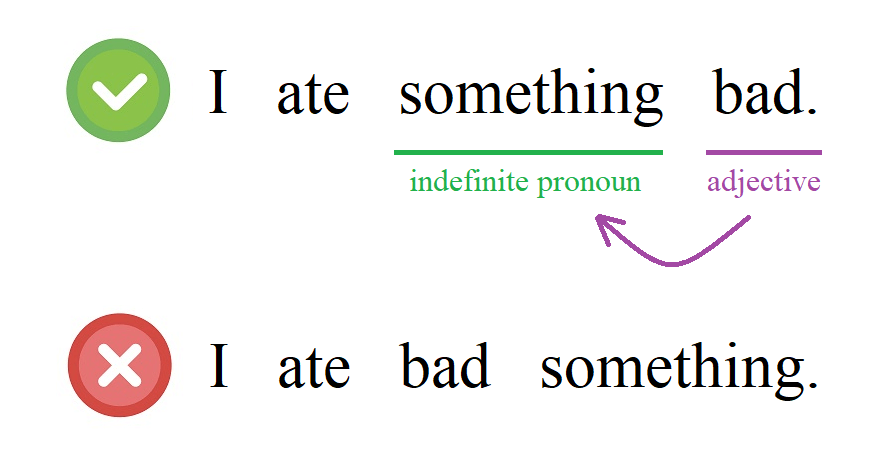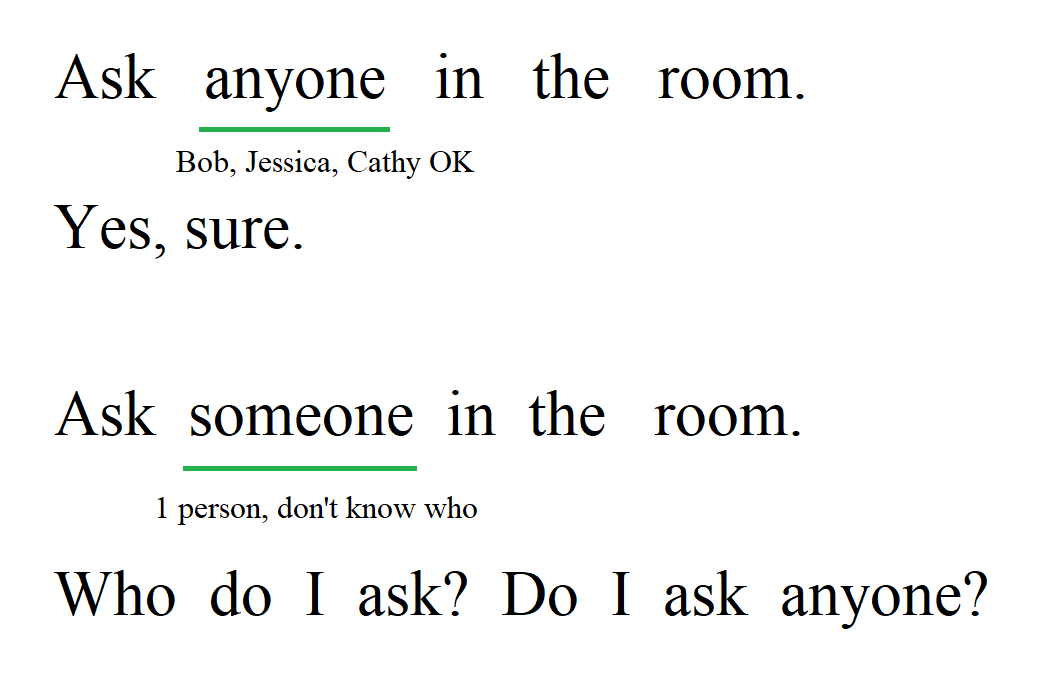Indefinite Pronouns with "Some-" and "Any-"
- Indefinite pronouns with "some-" and "any-" refer to an unspecified amount or number of things or people.
- "Some-" pronouns are used in positive statements, offers, and requests.
- "Any-" pronouns are used in negative sentences, questions, and sometimes in positive sentences with a meaning similar to "every."
Indefinite pronouns are essential in English because they help us refer to things or people without specifying who or what they are. In this lesson, we'll focus on the indefinite pronouns with "some-" and "any-" and learn how to use them correctly in different types of sentences.
What Are Indefinite Pronouns with "Some-" and "Any-"?
Indefinite pronouns with "some-" and "any-" include words like "someone," "something," "anyone," and "anything." These pronouns do not refer to any specific person or thing. Instead, they refer to an unspecified amount or number of things or people.
Using "Some-" Pronouns
"Some-" pronouns are commonly used in positive statements to indicate an unspecified amount of something. They are also used in offers and requests, implying the speaker expects the answer to be "yes."
"Someone" and "somebody" refer to an unspecified person.
"Something" refers to an unspecified thing.
Use these indefinite pronouns in positive sentences, offers, and requests.
Important! We always put an adjective after the indefinite pronoun, not before it. For example, we say "something bad" or "something nasty", not "bad something" or "nasty something".

Note that we use the third person singular verb when the subject is an indefinite pronoun with "some-".
Examples:
-
I bought something at the store.
This is a positive sentence. "Something" is the indefinite pronoun.
-
My sister met someone important at the party.
The adjective "important" is placed after the indefinite pronoun "someone".
-
Can I get you something to drink?
This is a request with an expected positive response.
-
Someone is sleeping on the couch in my living room.
We are using the third person singular "is" because the subject is "someone" (1 person).
Using "Any-" Pronouns
"Any-" pronouns are used in questions and negative sentences. They indicate that the amount or number is not specified and can be zero. In some positive sentences, "any-" pronouns can also mean "every" or "it doesn't matter which."
"Anyone" and "anybody" are used to indicate a person.
"Anything" is used to indicate a thing.
Important! We always put an adjective after the indefinite pronoun, not before it. For example, we say "anything good" or "anything nasty", not "good anything" or "nasty anything".
Use "any-" pronouns in questions, negative sentences, and positive sentences with meanings similar to "every."
Examples:
-
I don't know anyone in this town.
This is a negative sentence. The person knows 0 people in the town.
-
My dog eats anything on the floor.
This is a positive sentence. The dog eats everything that can be found on the floor.
-
Do you have anything good to eat?
We use "any-" indefinite pronouns in a question sentence.
"Some-" vs "Any-"
There is a difference between using "some-" and "any-" in a positive sentence. Take a look at the following example.
Examples:
-
Ask someone in the room.
In this sentence, you are telling someone to ask one unspecified person in the room.
-
Ask anyone in the room.
In this sentence, you are telling someone that anyone in the room is okay to ask.

この文法をAI英語教師と一緒に練習してみませんか?
ALULAのAI英語教師は、対話形式で実践的な練習を通じてあなたの文法力とスピーキング、リスニングなどのスキルを向上させます。また、このトピックに関する100以上の練習問題を用意しており、あなたの理解を深めるのに役立てることができます。
スマホやタブレットでALULAを無料で試してみてください。








このレッスンについて質問はありますか?以下のコメントセクションで質問してください。